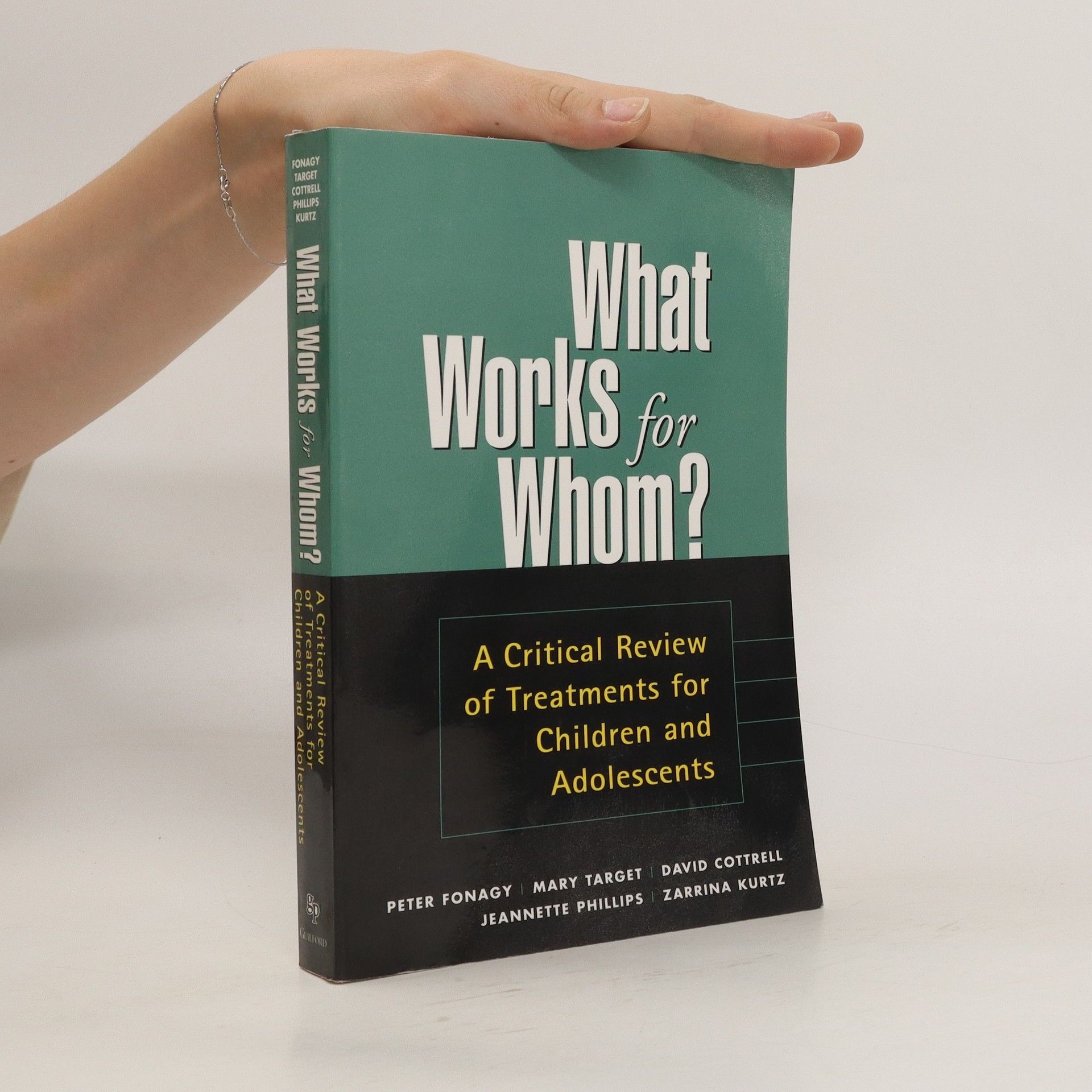What Works for Whom?
- 525bladzijden
- 19 uur lezen
This comprehensive book evaluates the evidence for the full range of widely used child and adolescent mental health treatments, providing vital knowledge to inform clinical decision making. Organized around major presenting problems, the book synthesizes findings from hundreds of carefully selected studies on both psychosocial and pharmacological approaches. Each chapter introduces the clinical problem at hand, systematically reviews the available outcome research, and spells out recommendations for evidence-based practice. Written by experienced researchers and practitioners, the volume emphasizes the importance of tailoring all interventions to the needs of the individual child.



